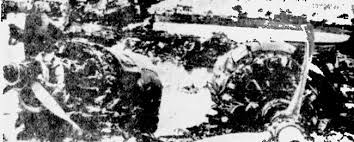Crash of a Rockwell Turbo Commander 680 near Dumfries
Date & Time:
Nov 15, 1982
Registration:
N89DA
Survivors:
Yes
MSN:
680-1702-78
YOM:
1967
Crew on board:
2
Crew fatalities:
Pax on board:
0
Pax fatalities:
Other fatalities:
Total fatalities:
0
Circumstances:
The twin engine airplane crashed in unknown circumstances in a field near Dumfries, about 15 km southeast of Montego Bay, Jamaica. Both pilots were not found and the airplane was damaged beyond repair. It was engaged in an illegal contraband mission.

